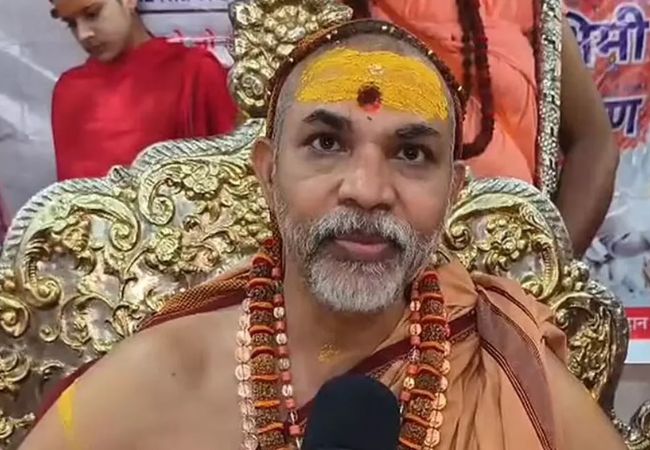In a remarkable achievement, Mohammed Aashiq, a 24-year-old chef from Mangaluru, has claimed victory in the latest season of MasterChef India. The popular reality show, known for showcasing exceptional culinary talents, premiered on Sony Liv from October 16, featuring home cooks from across the country.
Aashiq's triumph not only fulfills his personal dreams but also marks a milestone as the first winner of the competition from South India.
Despite initial aspirations of building a career in hotel management, financial constraints within Aashiq's family redirected his path. Undeterred by challenges, he entered the entrepreneurial world by launching a juice shop named ‘Kulki Hub’ in Mangaluru, demonstrating creativity in crafting unique recipes.
Having faced disqualification in the previous season, Aashiq returned this season with renewed determination, eager to overcome setbacks and display his skills on a national platform.
"This season, I return with newfound determination, ready to overcome past setbacks and make my mark. I am here not just to win but to stand for every dreamer who has dared to defy the odds," Aashiq was earlier quoted as saying by Outlook.
MasterChef India Season 8, exclusively streaming on Sony Liv, featured a panel of judges, including celebrity chefs Vikas Khanna, Ranveer Brar, and Pooja Dhingra. The show aired new episodes from Monday to Friday at 8 p.m.
Let the Truth be known. If you read VB and like VB, please be a VB Supporter and Help us deliver the Truth to one and all.
Lucknow (PTI): The Uttar Pradesh Congress on Wednesday staged a statewide protest demanding a fair and transparent inquiry into the FIR lodged against Swami Avimukteshwaranand Saraswati and those who filed the complaint against him.
In a statement issued here, the party said memorandums addressed to Prime Minister Narendra Modi were submitted through district magistrates in all districts of the state.
Uttar Pradesh Congress spokesperson Manish Hindvi told PTI that the memorandums were handed over through the district administration in all 75 districts.
In the memorandum, the party alleged that Saraswati and his disciples were "unnecessarily harassed and humiliated" by police on the occasion of Amavasya and were prevented from taking a ritual bath (at the Magh Mela). It further alleged that some disciples were manhandled and taken to a police station.
The memorandum also claimed that an FIR was later registered against Saraswati, his disciple Swami Mukundanand Brahmachari and several unidentified persons in a sexual harassment case. It termed the case a "conspiracy" aimed at tarnishing the seer's reputation.
Citing Articles 25 and 26 of the Constitution, the memorandum stated that these provisions guarantee religious freedom and the right of religious denominations to manage their own affairs.
It described the position of shankaracharya held by Saraswati as "one of the highest spiritual posts in Sanatan tradition" and alleged that the entire episode appeared to have been "orchestrated in a planned manner".
"We request that the background of the persons who got the FIR registered be investigated in a transparent manner by a retired high court judge and strict action be taken against them," the memorandum said.
It also sought a "fair and transparent probe" into the allegations levelled against Saraswati so that the truth could be established.
Earlier, Uttar Pradesh Congress president Ajay Rai had told reporters in Varanasi after meeting Saraswati that the party stood firmly with him.
The Congress said it would continue to press for an impartial inquiry into the entire episode.
On February 21, an FIR was lodged in Prayagraj against Saraswati and his disciple Mukundanand Brahmachari on charges of sexually abusing two persons, including a minor, over the past year at a gurukul and religious congregations, including the recently concluded Magh Mela.
Days after he was booked, Saraswati had said on Monday that he would not oppose his arrest and asserted that the "fabricated story" would be exposed sooner or later.
At a press conference on Wednesday, Saraswati alleged that criminals rule in Uttar Pradesh, level allegations and influence investigations, as he denied having any contact with the two persons for whose alleged sexual abuse he has been booked.



_vb_77.jpeg)
_vb_00.jpeg)
